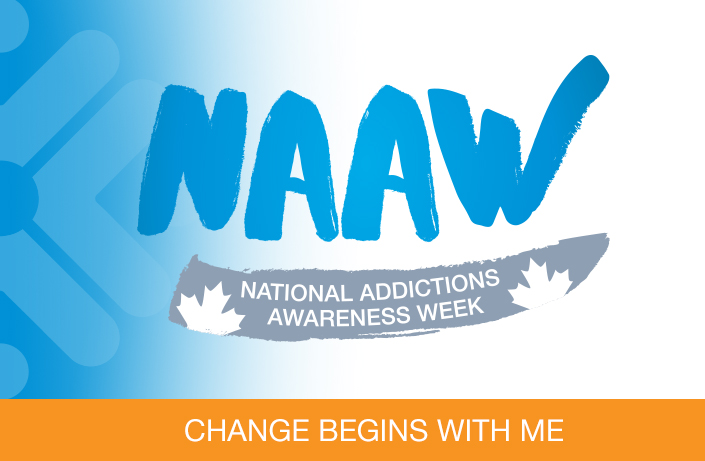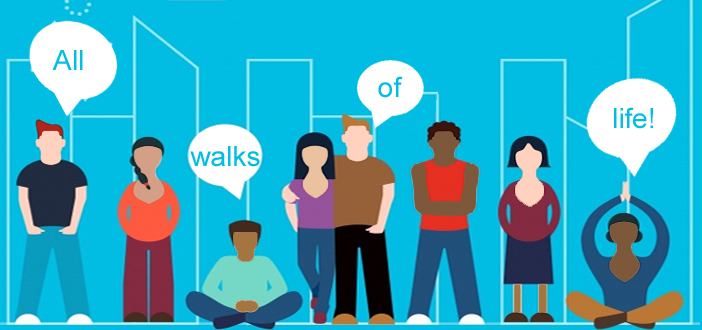National Addictions Awareness Week

Break the Stigma!
National Addictions Awareness Week (NAAW) is an annual event that shines a spotlight on the impact of addiction in our communities. It fosters understanding, empathy and support for those affected. Raising awareness about the challenges that come with addictions is an integral part to breaking the stigma of addictions.
NAAW provides a platform to dispel myths, reduce stigma and promote a more compassionate and informed approach to addiction. It encourages open conversations about substance use and its effects on individuals, families, and communities. This week serves as a reminder that addiction is a complex health issue that requires understanding, support, and evidence-based interventions.
Understanding Addictions as a Student: Why it Manifests
It’s crucial to recognize the unique challenges that post-secondary students face and how they can contribute to the manifestation of addiction.
- Academic pressure: the demand of course work, exams, and assignments can be overwhelming. Substances may be used as a way to cope with this.
- Social pressure: peer pressure, desire to fit in, and social expectations can contribute to experimenting with substances.
- Transition: moving to a new country or city can be daunting. You may experience feelings of isolation or lack of belonging.
- Identity exploration: post-secondary is a time of transition and self-discovery for many students. This can lead to experimentation with substances to navigate the changes.
- Mental health challenges: pre-existing mental health conditions or the onset of mental health challenges during this period can contribute to substance use as a form of self-medication.
What to Look Out For

Whether you have used substances or know someone that has, here are some things to look out for that may be concerning:
- Changes in behavior: sudden shifts in academic performance, social withdrawal, or a noticeable change in personality may indicate that a person is struggling.
- Physical Signs: unexplained weight loss, changes in sleep patterns, or a decline in personal hygiene can be indicative of substance use.
- Isolation: if a student begins to isolate themselves from friends and family, it may be a sign of a deeper issue that needs attention.
- Academic decline: a significant drop in grades or missed classes could be a red flag.
- Mood swings: rapid and extreme changes in mood, irritability, or heightened anxiety can be signs of emotional distress.
Want to Learn More?
Register for a webinar hosted by Campus Well-Being and Michael Kurek on November 22nd from 12:00pm to 1:00pm.
Get to know the Presenter
Michael Kurek – Director of Family Programming for the CMHA and the Bruce Oake Recovery Centre

Michael Kurek has attained 3 educational degrees. A Bachelor of Music from Wilfrid Laurier University in Waterloo, a Master of Divinity from Trinity College, and a Masters of Marriage and Family Therapy from the University of Winnipeg.
Michael became interested in therapy while doing a practicum at Queen Street Mental Health Centre in Toronto. While completing his MMFT degree, he was Head of Counselling at the Village Clinic serving the HIV/AIDS community where he became focused on the issue of addictions. For the past three decades he has worked in four addiction treatment centres doing family programming and is currently the Director of Family Programing for the Canadian Mental Health Association, Manitoba and Winnipeg, and the Bruce Oake Recovery Centre, a shared contract position funded by United Way. He is a site supervisor for the Master of Education Counselling Psychology program at the Universities of Manitoba and Lethbridge and taught at both the Universities of Manitoba and Winnipeg.
Canadian Centre on Substance Use and Addictions
Canadian Centre on Substance Use and Addictions (CCSA) offers resources and tools related to addictions. You can check them out here!
Manitoba Substance Use & Addictions Awareness Week
If you are interested in learning more about the harms and solutions related to substance use and addictions, join the webinars here!
Resource Reminders
If you or someone you know may be struggling with substance use and addictions, there are resources that you can access on campus and in the community.
- Student Counselling Services
- Indigenous Support Services
- Campus Well-Being
- Community Crisis Resources
Staff Resource Reminders
You may also be interested in the following
